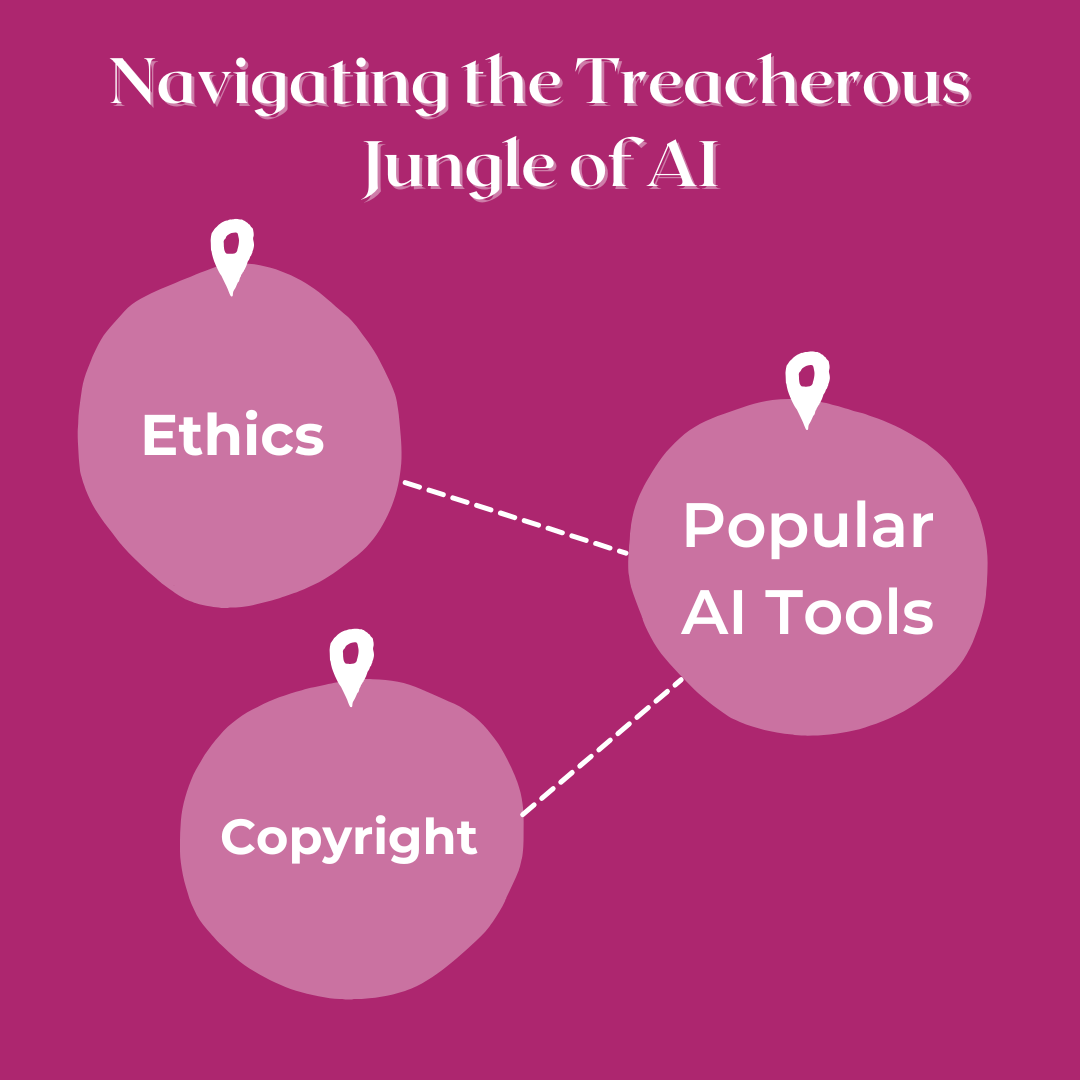TLDR;
Over the past year, the indie romance publishing world has been slammed with a deluge of AI innovations. AI companies are deep in legal disputes over the unauthorized use of copyrighted material to train their algorithms. Meanwhile, AI tools are offering creators potential new opportunities for efficiency and creativity. Buckle up, buttercups. We’re not through this yet.
AI and Copyright: The Legal Battleground
The Lowdown
In the past year, several lawsuits have been filed against AI companies for unauthorized use of copyrighted content. Notably, a group of eight U.S. newspapers sued OpenAI and Microsoft, alleging that their AI chatbots were trained on millions of copyrighted articles without permission. Similarly, authors like Jodi Picoult have taken legal action against AI developers for using their works in training datasets without consent.
Implications
These legal battles underscore a growing tension between AI companies and creators of any kind. The outcomes could significantly influence how AI companies access and utilize data, potentially affecting the creative rights of authors and artists.
AI for Authors: A Double-Edged Sword
The Lowdown
AI has become a valuable tool for indie authors, assisting in tasks such as content creation, editing, and marketing. Platforms like Sudowrite and Jasper have gained popularity for their ability to generate text and ideas, advertising how they help authors overcome writer’s block and enhance productivity.
However, the rise of AI-generated content has also led to challenges. Publications like Clarkesworld have faced an influx of low-quality, AI-generated submissions, prompting discussions about the impact of AI on content quality and the potential for market saturation.
Implications
The indie world will have to find a general approach on navigating these tools, balancing the benefits of AI assistance with the need to maintain originality and quality in their work. This is not a straightforward task. The ethical considerations and market floods of low-quality material are significant concerns.
Ethical Considerations: Navigating the AI Landscape
The Lowdown
The integration of AI into the creative process raises serious ethical questions, particularly on the use of human-created works to train AI models. Authors and artists have expressed concerns about AI companies using their creations without consent or compensation, leading to calls for clearer guidelines and protections.
Implications
Understanding the ethical implications of using AI in writing and publishing is crucial for maintaining both creative integrity and protecting intellectual property rights. Artists and authors have no choice but to stay informed about these ethical debates and consider how their use of AI aligns with their profession’s rights and their ability to pay their bills.
Housekeeping
For more information about this newsletter’s spice and star system, check out this newsletter’s About Me page.



